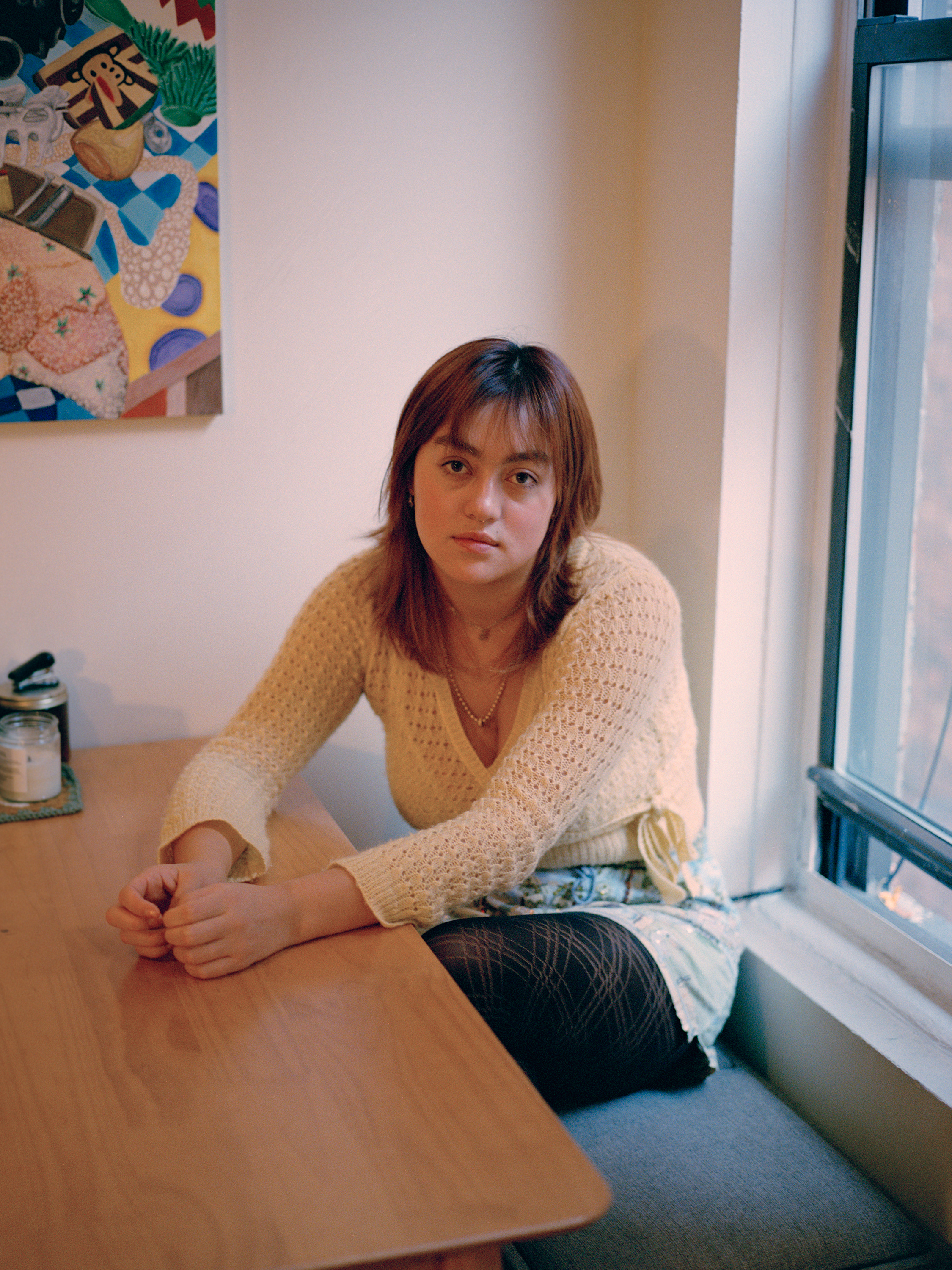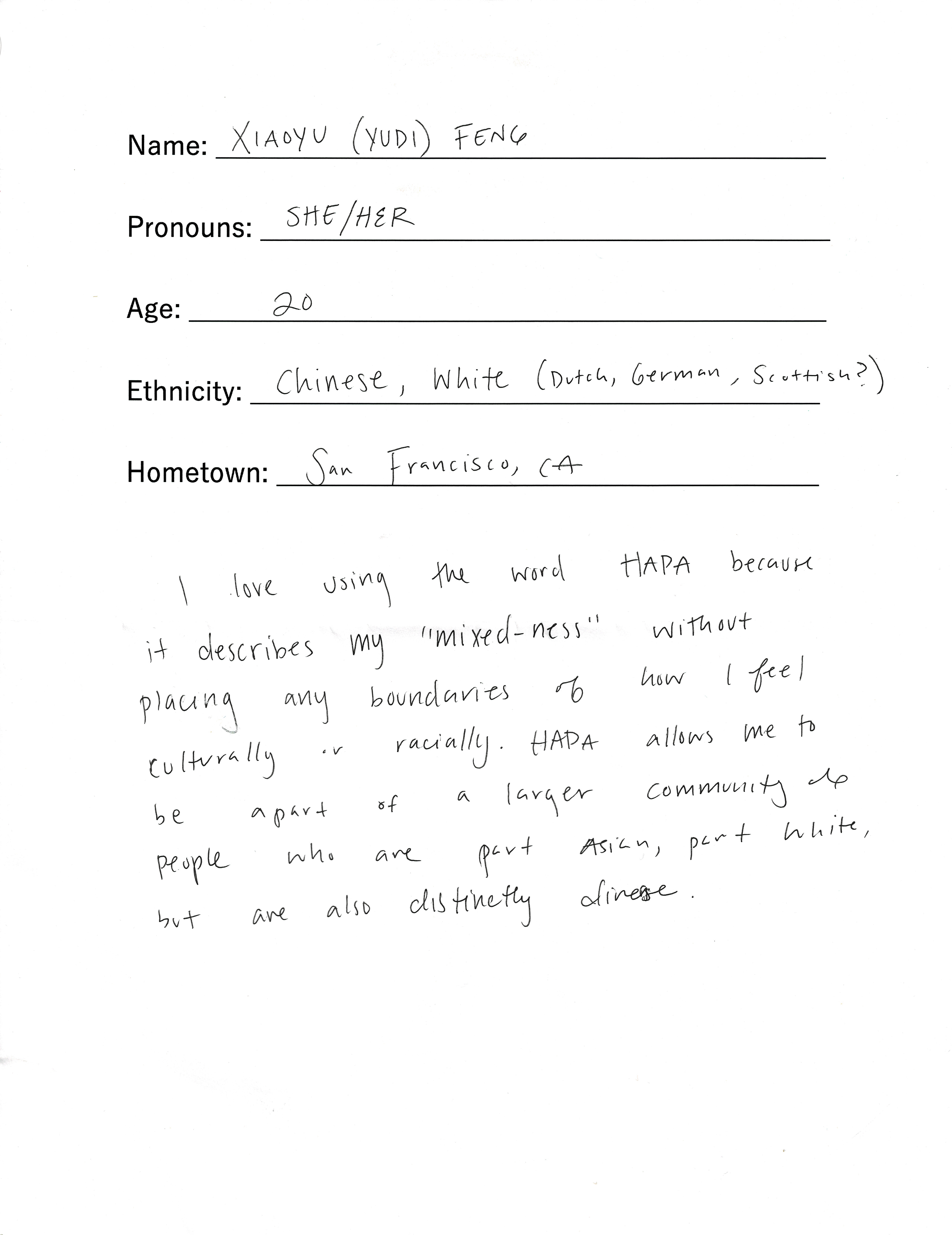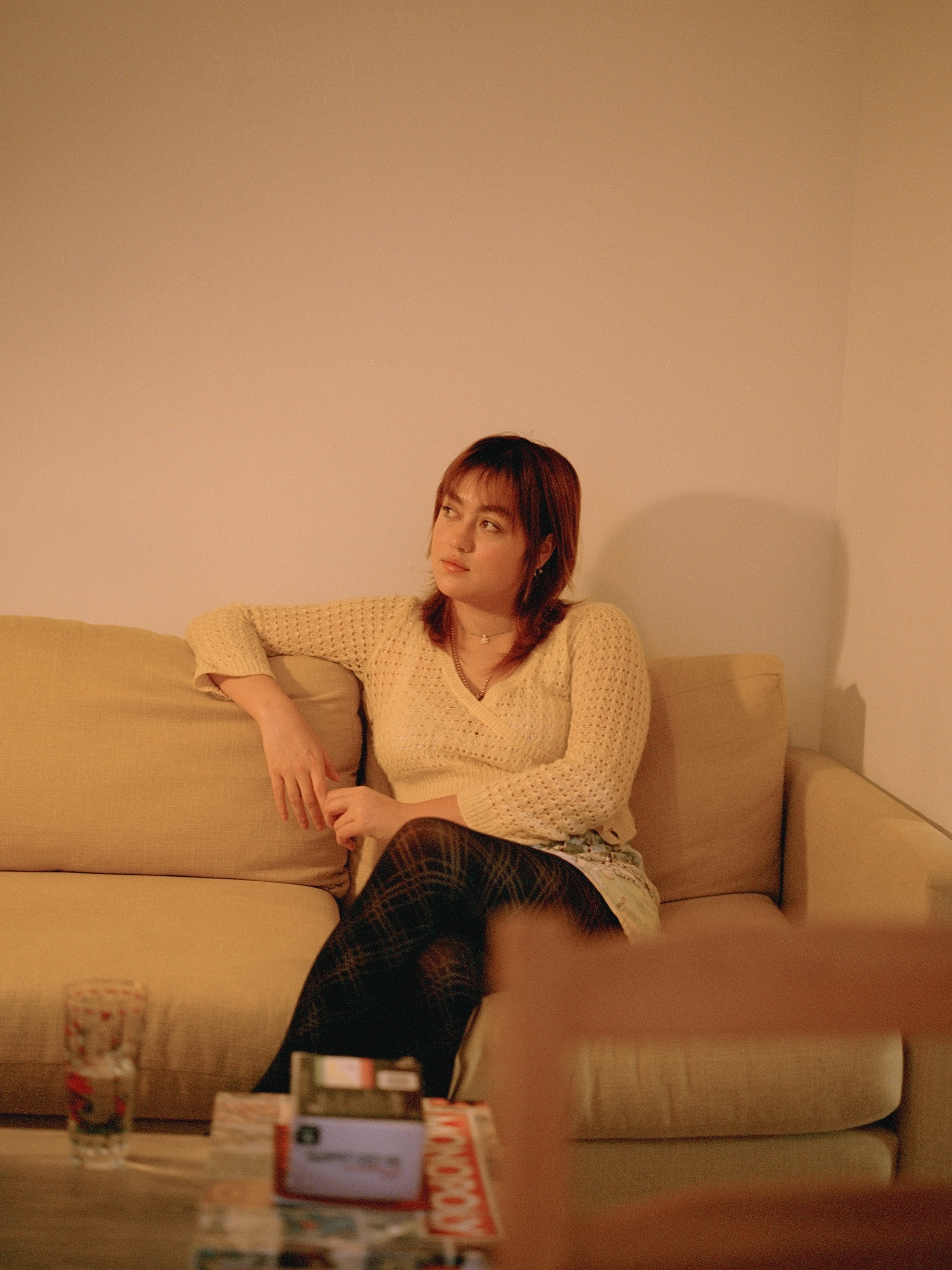Yudi Feng


The word that I use on an everyday basis, I think would be Hapa, which basically [means] half white and half Asian, but more specifically I'm half Chinese and half white, and that white side is a conglomerate of countries that's not really clear. But I also tend to identify as bicultural as well, because my dad lives in China and he's lived in China my entire life, and so I feel like my connection to being half Chinese is very much based in China, [which is] why I don't I identify as Chinese American, because I think my American side and my Chinese side are very separate entities.

My dad grew up in a fairly lower middle-class family in Shanghai, and his immediate family was very much affected by the Cultural Revolution, and so he moved to Marin county, which is in the Bay Area, when he was 18. My mom and my dad met in their early twenties working at this Japanese restaurant together, and they were married I think for 17 years, until I was five. So my dad became really close with my mom's family just because of the proximity—my mom's from Marin county and I think it was really hard for him moving to the states because, I mean, it was like a really classic immigrant story where he came to the US with [very little] money in his pocket, didn't speak any English, and worked at restaurants as a dishwasher for a long time. But I think he really did find a family in my mom's family.

But once he got more into business, pretty much throughout my entire childhood, he lived in China even when they were married, so I think their dynamic was interesting. We lived in China when I was five and when I was two, and [my mom] also spent a lot of time in China before I was born, and so she's really close with my grandmother who I'm also really close with, and she has close ties with my cousins on my dad's side and stuff like that, and she used to speak fluent Chinese. So I think they really became entrenched in each other's cultures and families in a lot of ways.
Up until I was, I think 13, my brother and I would go [to China] for all 10 weeks of summer, so we would leave the day that school got out, and then come back with a week before school started, and we also spent winters there. So we spent a lot of time in China, and I did really like it, but it was also just really difficult as a young person only having one sibling spending time in this country where we don't really know anyone else our age.
We went to school in China when we lived there for a year, but a lot of the time I spent in China was with adults because we just didn't really know any kids, or we spent time alone. So I feel like my experiences as someone who is mixed, in China, exist very much within the bounds of my family. And there always are little comments about white features and stuff, but I think Chinese people have a really interesting way of talking about how you look, but like, not in a way that's offensive, I guess. Cause I just think it's more common there for family members to make comments on your appearance.

I grew up in San Francisco, and a lot of the kids I went to school with were mixed, so I think I didn't really realize that I was a person of color really until I got to high school. Like I realized that I was Chinese, but I didn't really identify with being a person of color. But once I got to high school, that became really important to me, so I think I have much more of a connection with being Hapa and being a POC now that I am an adult. But I think also as I've grown up, dynamics in my family back in the US are so much more obvious. And not that I ever feel like someone in my family is being racist against me, I just sometimes feel like my grandparents don't know what to do with me and my brother, because everyone else in our family is really white, and so I think that's hard, but not necessarily something that I feel ostracized by, I think it's just something that I've realized.
I think I'm starting to figure out my relationship with China, like outside of my family, which has been really nice and has contributed a lot to seeing myself as my own entity and as someone who has an experience that is distinctly their own. I went to a really progressive small private school in San Francisco and a big part of the school's learning goals was multiculturalism, and so I think I had a much bigger community of Asian people or Hapa people in high school and in San Francisco than I do here, and I've obviously made a lot of great connections with people who are Hapa or people who are Asian, but I don't have that central community that I feel like I had in high school. It’s not something that's keeping me up at night, but it is something that I would like to find.
